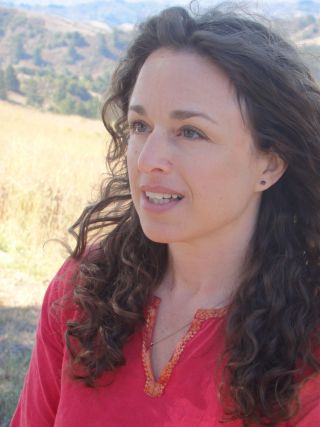Marriage
Susanna Sonnenberg: The Line Between Stepmother and Mother
Family, or simply bound by the man who is father and husband?
Posted May 4, 2014
Here's a sneak-preview: an excerpt from the beginning of Susanna Sonnenberg's lovely Shebook (a short e-book), Stepmother, which will be available in May:

You remember it when someone says she will be your mother. Maybe my stepmother was tipsy, and I was, too, and her dizzy proclamation just tumbled out as we sat in my father’s room over dinner, the three of us. This was several years ago. I was relating another of those stories about my mother, some betrayal, outrageous tyranny, my fatigue and hurt, and my father, Ben, was saying his quiet, “Oh, my.” We always talked about my mother this way, as if she were only a story, as if none of us had ever met this person. Dorothy, maybe to be funny, put her hand in the air and said, “Oh, Sue! I will be your mother!” We laughed, and I said, “Thank you.” She was, I think now, talking to Ben rather than to me, flirting. Some business between them. Maybe, with her own history of brusque parents, she didn’t fathom that people relied on one another. Maybe she didn’t know that her statement bound me to her. I thought she meant what she said, and, flushed with extravagant gratitude, I reached forward, all of me did.
My father married Dorothy when I was 15. His multiple sclerosis wasn’t bad yet. She could hold her own with him, and when he teased or disparaged me, she stopped him. That was something new in my family, and good. She wasn’t warm, but I admired her frankness. They’d been married about five years, and she invited me to come away with her one weekend, a getaway from her daily work of caring for my father and running the household, and I was flattered. Constant rain splattered the doorjamb of the cottage she’d rented, and we had to stay indoors the whole time. She was very funny and mock-fatalistic about our terrible luck. She made coffee, and we read the Times, me on the couch and Dorothy at the little Formica table with a cigarette. Returning together on the train, I felt we’d had a breakthrough of some kind, that she was firmly my stepmother.
In my father’s kitchen, I used to stand against the counter as she washed the broccolini. We’d catch up, notice each other’s haircuts; I told her news of my sons, and she’d marvel at how foreign she found them in their excitements, their needs. Several Sundays I’d gone with her to visit her parents (I was much younger then, and they were very old). She told me once that she liked taking me because it pleased them so much. In thrift shops we lingered, her expert hand finding me vintage jackets and rose gold lockets. She kept piles of clothes in her bedroom closet in rumpled shopping bags, and when I visited from Montana, we always spent my first hour in the guest room with the door closed, girlish privacy from my father, who waited for us in his mechanical bed in the room across the hall. She brought things out. “Now this, Sue!” she’d say. “It’s cashmere, it’s Donna Karan.” She’d lay it on the bed. “Try it on.” She gave me every piece I liked, and I felt something I never did with my own mother—that someone strong and capable was looking after me. I practiced her taste in much of what I bought, wore, arranged, longed for. In Missoula thrift shops, I asked myself if Dorothy would hang these curtains, use this pitcher. The first present she gave me was a soft blue tablecloth for a new apartment when I was 19. Three decades later, I still have it. I was with her when she went to pick up her mother’s ashes, watched her model this solemn task. Another time, she asked me to accompany her to collect the black dog and the black cat from Bide-A-Wee, after she’d convinced my father to have them. We came back in a taxi, the little animals between us, her voice as light as a child’s as she comforted them. She named them Daisy and Bones.
We were related by marriage, as they say. When I was 44, when Dorothy had been my stepmother for 29 years, my father died. Now, their marriage done, its term expired, would our history, our titles, be revoked? As oxygen finished its course through his weak chest, our contract was voided, and we were no longer a stair-step apart, but instead this woman and that woman.
Susanna Sonnenberg is the author of Her Last Death and She Matters: A Life in Friendships. A frequent contributor to the San Francisco Chronicle Book Review, she lives and teaches in Missoula, Montana.


